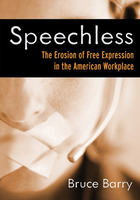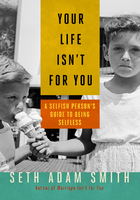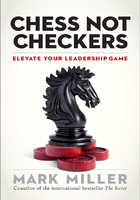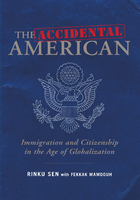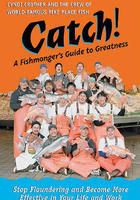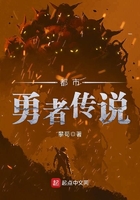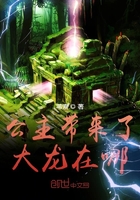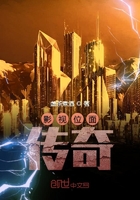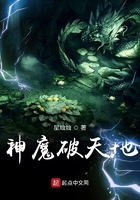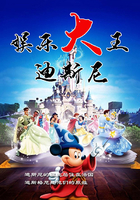OUR TWO MOST COMMON ways of trying to address our toughest social challenges are the extreme ones: aggressive war and submissive peace. Neither of these ways works. We can try, using our guns or money or votes, to push through what we want, regardless of what others want-but inevitably the others push back. Or we can try not to push anything on anyone-but that leaves our situation just as it is.
These extreme ways are extremely common, on all scales. One on one, we can be pushy or conflict averse. At work, we can be bossy or "go along to get along." In our communities, we can set things up so that they are the way we want them to be, or we can abdicate. In national affairs, we can make deals to get our way, or we can let others have their way. In international relations-whether the challenge is climate change or trade rules or peace in the Middle East-we can try to impose our solutions on everyone else, or we can negotiate endlessly. These extreme, common ways of trying to address our toughest social challenges usually fail, leaving us stuck and in pain. There are many exceptions to these generalizations about the prevalence of these extreme ways, but the fact that these are exceptions proves the general rule. We need-and many people are working on developing-different, uncommon ways of addressing social challenges: ways beyond these degenerative forms of war and peace.
A character in Rent, Jonathan Larson's Broadway musical about struggling artists and musicians in New York City, says, "The opposite of war isn't peace, it's creation!"[1] To address our toughest social challenges, we need a way that is neither war nor peace, but collective creation. How can we co-create new social realities?
TWO FUNDAMENTAL DRIVES
To co-create new social realities, we have to work with two distinct fundamental forces that are in tension: power and love. This assertion requires an explanation because the words "power" and "love" are defined by so many different people in so many different ways. In this book I use two unusual definitions of power and love suggested by theologian and philosopher Paul Tillich. His definitions are ontological: they deal with what and why power and love are, rather than what they enable or produce. I use these definitions because they ring true with my experience of what in practice is required to address tough challenges at all levels: individual, group, community, society.
Tillich defines power as "the drive of everything living to realize itself, with increasing intensity and extensity." So power in this sense is the drive to achieve one's purpose, to get one's job done, to grow. He defines love as "the drive towards the unity of the separated."[2] So love in this sense is the drive to reconnect and make whole that which has become or appears fragmented. These two ways of looking at power and love, rather than the more common ideas of oppressive power and romantic love (represented on the cover by the grenade and the rose), are at the core of this book.
OUR FULL WORLD
We cannot address our tough challenges only through driving towards self-realization or only through driving towards unity. We need to do both. Often we assume that all it takes to create something new-whether in business or politics or technology or art-is purposefulness or power. This is because we often assume that the context in which we create is an empty world: an open frontier, a white space, a blank canvas. In general this assumption is incorrect.
Let's look at a historical example. In 1788, British settlers arrived in Australia and encountered the indigenous people who had arrived 40,000 years earlier. This history illustrates not only the courage and entrepreneurialism of people willing to travel across the globe to create a new social reality, but also the human and ecological devastation that this pioneering mind-set can produce. For more than two centuries, the conflict between settlers and aboriginal peoples in Australia was framed in terms of the doctrine of terra nullius, a Roman legal term that means "land belonging to no one," or "empty land." It was not until 1992 that the High Court of Australia ruled that the continent had in fact never been terra nullius, and that the modern-day settlers had to work out a new way of living together with the aboriginal people.
None of us lives in terra nullius. We can pretend that our world is empty, but it is not. Our earth is increasingly full of people and buildings and cars and piles of garbage. Our atmosphere is increasingly full of carbon dioxide. Our society is increasingly full of diverse, strong, competing voices and ideas and cultures. This fullness is the fundamental reason why, in order to address our toughest social challenges, we need to employ not only power but also love.
A challenge is tough when it is complex in three ways.[3] A challenge is dynamically complex when cause and effect are interdependent and far apart in space and time; such challenges cannot successfully be addressed piece by piece, but only by seeing the system as a whole. A challenge is socially complex when the actors involved have different perspectives and interests; such challenges cannot successfully be addressed by experts or authorities, but only with the engagement of the actors themselves. And a challenge is generatively complex when its future is fundamentally unfamiliar and undetermined; such challenges cannot successfully be addressed by applying "best practice" solutions from the past, but only by growing new, "next practice" solutions.
The fullness of our world produces this threefold complexity. We can pretend that we are independent and that what we do does not affect others (and what others do does not affect us), but this is not true. We can pretend that everybody sees things the same way, or that our differences can be resolved purely through market or political or legal competition, but this is not true. And we can pretend that we can do things the way we always have, or that we can first figure out and then execute the correct answer, but this is not true.
When we pretend that our world is empty rather than full, and that our challenges are simple rather than complex, we get stuck. If we want to get unstuck, we need to acknowledge our interdependence, cooperate, and feel our way forward. We need therefore to employ not only our power but also our love. If this sounds easy, it is not. It is difficult and dangerous.
TWO PITFALLS
Power and love are difficult to work with because each of them has two sides. Power has a generative side and a degenerative side, and-less obviously-love also has a generative side and a degenerative side. Feminist scholar Paola Melchiori pointed out to me that we can see these two sets of two sides if we look at historically constructed gender roles. The father, embodying masculine power, goes out to work, to do his job. The generative side of his power is that he can create something valuable in the world. The degenerative side of his power is that he can become so focused on his work that he denies his connection to his colleagues and family, and so becomes a robot or a tyrant.
The mother, by contrast, embodying feminine love, stays at home to raise the children. The generative side of her love is that she gives life, literally to her child and figuratively to her whole family. The degenerative side of her love is that she can become so identified with and embracing of her child and family that she denies their and especially her own need for self-realization, and so stunts their and her own growth.[4]
Love is what makes power generative instead of degenerative. Power is what makes love generative instead of degenerative. Power and love are therefore exactly complementary. In order for each to achieve its full potential, it needs the other. Just as the terra nullius perspective of focusing only on power is an error, so too is the pop perspective that "all you need is love."
Psychologist Rollo May, a friend of Paul Tillich, warned of the dangers of disconnecting power (which he referred to as "will") from love. "Love and will," he wrote, "are interdependent and belong together. Both are conjunctive processes of being-a reaching out to influence others, molding, forming, creating the consciousness of the other. But this is only possible, in an inner sense, if one opens oneself at the same time to the influence of the other. Will without love becomes manipulation and love without will becomes sentimental. The bottom then drops out of the conjunctive emotions and processes."[5] May's conjunctive processes also operate on a social level, and we can effect nonviolent social change only if we can engage both our power and our love.
One of the greatest practitioners of nonviolent social change, Martin Luther King Jr., was both a practical activist and a spiritual leader. He demonstrated a way of addressing tough social challenges that went beyond aggressive war and submissive peace, thereby contributing to the creation of new social realities in the United States and around the world. In his last presidential speech to the Southern Christian Leadership Conference, King-drawing on his doctoral studies of Tillich's work-emphasized the essential complementarity between power and love.[6] "Power without love is reckless and abusive," King said, "and love without power is sentimental and anemic."[7]
My own experience of the past twenty years entirely bears out King's analysis. Power without love is reckless and abusive. If those of us engaged in social change act to realize ourselves without recognizing that we and others are interdependent, the result will at best be insensitive and at worst, oppressive or even genocidal. And love without power is sentimental and anemic. If we recognize our interdependence and act to unify with others, but do so in a way that hobbles our own or others' growth, the result will at best be ineffectual and at worst, deceitfully reinforcing of the status quo.
Power without love produces scorched-earth war that destroys everything we hold dear. Love without power produces lifeless peace that leaves us stuck in place. Both of these are terrible outcomes. We need to find a better way.
In his speech, King went on to say, "This collision of immoral power with powerless morality constitutes the major crisis of our time."[8] This collision continues because our polarization of power and love continues. In our societies and communities and organizations, and within each of us, we usually find a "power camp," which pays attention to interests and differences, and a "love camp," which pays attention to connections and commonalities. The collision between these two camps-in the worlds of business, politics, and social change, among others-impedes our ability to make progress on our toughest social challenges.
AN IMPERATIVE
Power and love stand at right angles and delineate the space of social change. If we want to get unstuck and to move around this space-if we want to address our toughest challenges-we must understand and work with both of these drives.
Rather than a choice to be made one way or another, power and love constitute a permanent dilemma that must be reconciled continuously and creatively. This reconciliation is easy in theory but hard in practice. Carl Jung doubted whether it was even possible for these two drives to coexist in the same person: "Where love reigns, there is no will to power; and where the will power is paramount, love is lacking. The one is but the shadow of the other."[9] His student Robert Johnson said, "Probably the most troublesome pair of opposites that we can try to reconcile is love and power. Our modern world is torn to shreds by this dichotomy, and one finds many more failures than successes in the attempt to reconcile them."[10]
I have seen many examples of reckless and abusive power without love, and many examples of sentimental and anemic love without power. I have seen far fewer examples of power with love. Too few of us are capable of employing power with love. More of us need to learn.
If we are to succeed in co-creating new social realities, we cannot choose between power and love. We must choose both. This book explores how.

